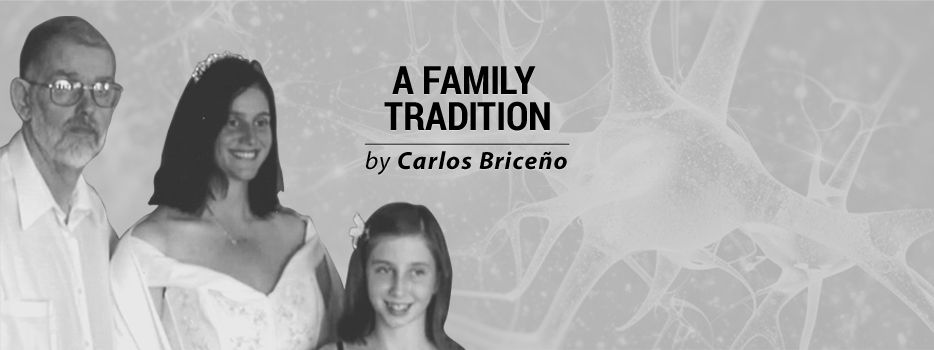Making a Difference in the Upcoming Elections
Written by |

When I write this column every week, I try to only share the things that can, and will, affect my family’s battle with Huntington’s disease. Today, I would like to write about something that affects people with every disease and the families who care for them: voting.
I realize this a hot-button topic and many people have passionate views that often lead to heated debates. Please know I am not telling you how to vote, nor am I sharing my opinions. My purpose is to remind you that whomever you vote for in November will impact all of us for years to come — especially those who have a family member with a rare disease.
It’s no secret that political leaders are often slow with legislation. It can take months or years to write a bill and put it up for a vote. Then, of course, it only becomes a law if a majority of both Congressional chambers vote in favor of it and the president signs it. The crazy thing is, historically, less than 7% of proposed bills become law.
Many citizens don’t vote because they don’t believe their vote counts, but they couldn’t be more wrong. Every elected official works for the people. Ideally, the more constituents that want a bill passed, the more likely the elected official will support it. Support for bills such as the Americans with Disabilities Act and the Family and Medical Leave Act proved crucial to providing protection to people with disabilities and their families.
Once a person is considered disabled, they can apply for disability. The process is long, and the disabled person is often denied for a multitude of reasons, which may require the person to go down the costly path of employing an attorney to appeal the decision.
If the person wins the appeal, they start getting benefits. Because people are usually on disability due to health issues, they run into another problem. Good healthcare is expensive, and the person on disability is no longer able to purchase insurance through an employer because they can’t work.
Other obstacles remain. Some people qualify for Medicaid, but some don’t. Families who live above the poverty line don’t qualify for Medicaid. Adding to all this is a two-year wait after their date of entitlement to get Medicare benefits, leaving many middle-class families struggling to pay bills. Many of these families’ savings accounts are wiped out because of medical visits and treatments for their loved ones. My wife’s mom was financially devastated by her husband’s medical debt. (He struggled with Huntington’s disease for years.)
All this bureaucracy is difficult and puts pressure on caregivers, making an already overwhelming situation more stressful. The solution is easy: Allow people to get Medicare from the beginning. You may think this would be a complicated task, but it’s already an established practice with people younger than 65 with certain disabilities, such as permanent kidney failure and ALS. They don’t have to wait two years.
So if this is already established for some diseases, why isn’t it for all?
One answer may offer a simple explanation: The squeaky wheel got the grease. Making your opinions known often leads to action in Congress, which means that those who face other rare and chronic diseases have to make their voices relentlessly heard in the corridors of power in Washington, D.C.
That’s why voting is so important. It’s also critical to research where candidates stand on issues relating to disabilities or rare/chronic disease. Use your vote to tell them that you expect them to be your voice when they vote for bills, and that you will continue to expect them to do everything they can to help some of the most vulnerable people in their districts.
Your voice — and your vote — can make all the difference.
***
Note: Huntington’s Disease News is strictly a news and information website about the disease. It does not provide medical advice, diagnosis, or treatment. This content is not intended to be a substitute for professional medical advice, diagnosis, or treatment. Always seek the advice of your physician or other qualified health provider with any questions you may have regarding a medical condition. Never disregard professional medical advice or delay in seeking it because of something you have read on this website. The opinions expressed in this column are not those of Huntington’s Disease News or its parent company, Bionews, and are intended to spark discussion about issues pertaining to Huntington’s disease.



Jennifer Cromwell
Thank you for your very diplomatic and necessary approach to this topic. It is critical for all to realize the importance of research and the duty and responsibility to vote.
Carlos Briceño
Thank you! I appreciate what you shared.
Carlos Briceño
Thank you!
Donna
Excellent article educating why political involvement from knowing who your representatives are to communicating with them and knowing the ballot propositions is so important. Thank you for sharing this with Huntington Disease families and friends.
Carlos Briceño
Thank you!